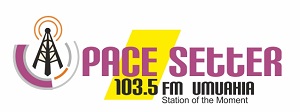HELP NIGERIA DEVELOP HER NATURAL RESOURCE SECTOR — EXPERTS TASK JOURNALISTS
Special Report by :ALFRED AJAYI –
Journalists have been advised to beam the searchlight on happenings in the natural resource sector, which is beginning to attract attention across the country. The Publisher and Editor-in-Chief, Premium Times Online Newspaper, Mr. Dapo Olorunyomi, gave the advice during a webinar organized for some selected journalists across the country by the Premium Times Centre for Investigative Journalism, (PTCIJ).
According to Mr. Olorunyomi, dwindling fortunes of oil in the global market has compelled nations of the world, including Nigeria, to pay attention to other hitherto neglected areas, including the natural resources sector, which he argues has the potentials to sustain the nation’s economy, if well managed.
“Journalists must pay attention to emerging realities in the natural and extractive industry. That is why the PTCIJ created this programme. The role of Journalism and journalists is to provide interpretation for people and help them to ensure that institutions and persons responsible are held accountable for what they do with our collective destiny.
“We must interrogate issues like legal frameworks for efficiency. How sufficient are they? Who are the people responsible for activities within the sector? How are they going about their duties? Which people are affected by their activities?
“Since we work for the good of the society, our reporting must be true and accurate, devoid of bias,” Mr. Olorunyomi insisted.
In a presentation on Natural Resource Management, a Media Capacity Development Associate of the National Resource Governance Institute, Abuja, Ms Toyin Akinniyi, expressed regret that the mining sector, which contributed twelve per cent to the nation’s Gross Domestic Product (GDP), in the seventies, now contributes less than one per cent to the GDP.
She was of the opinion that for Nigeria to keep the agenda of a diversified economy alive, media professionals must help with frequent and professional reporting of the sector, while revenue generated in the oil and gas sector must be transparently utilized with strong oversight.
“The media is at the centre of all these. Journalists must be able to ask the right questions to the rights people across the value chain.
“Also, governance decisions must be right to have positive results. And let me say this – without the Petroleum Industry Bill (PIB) passed and assented to, Nigeria will continue to run in a circle. There will be no progress without necessary legal and institutional framework. PIB is badly needed but had unfortunately been delayed by lack of political will, Ms Akinniyi stated.”
The Director (Technical), the Nigeria Extractive Industry Transparency Initiative (NEITI), Dr. Dieter Bassi, stressed the need for Nigeria to build the confidence of the investors to come in and develop the extractive sector. He noted that infrastructure was needed to fast-track the development of the sector while efforts must be made to reverse the current poor and ineffective oversight.
“The regulatory agency must be vibrant. Mining should be done responsibly. Miners should be given access to funding.
“Journalists should focus on the value chain in the mining sector. Pay attention to licences given. Are they using the licences legally? How do we regulate artisanal miners? Nigeria is not using its gas potential as efficiently as we are supposed to. This has to change,” Dr. Bassi bellowed.
The facilitators and participants were unanimous in their submission that with sustained reporting of the natural resource sector, Nigeria would in no distant time change its current status of a mono economy to a diversified economy.
